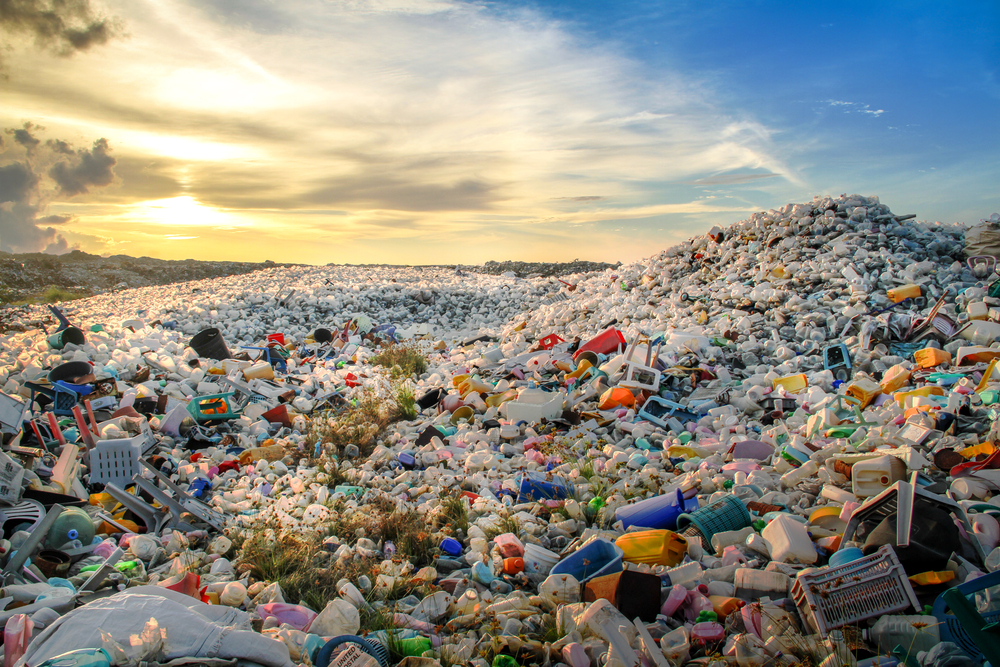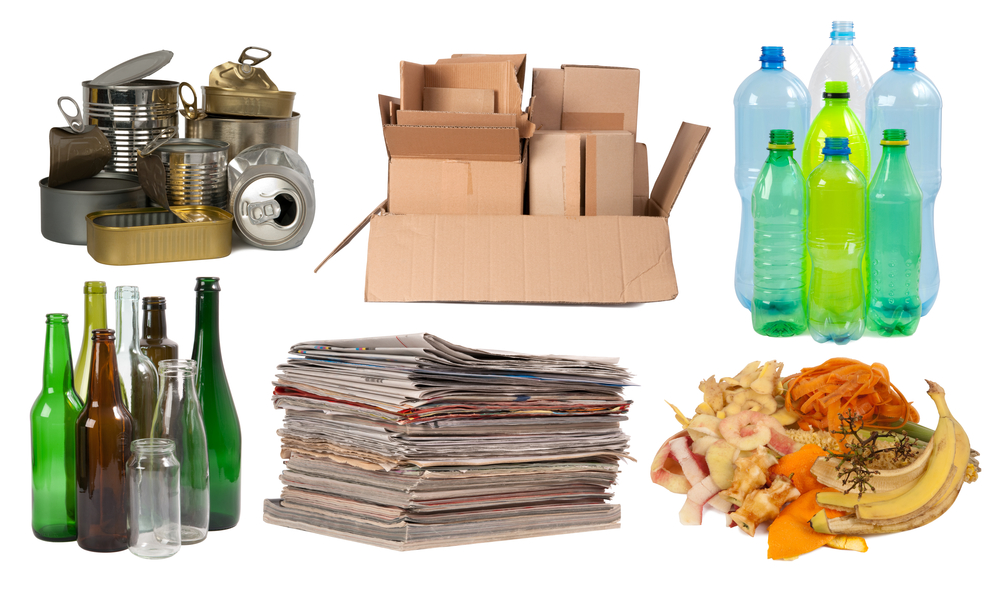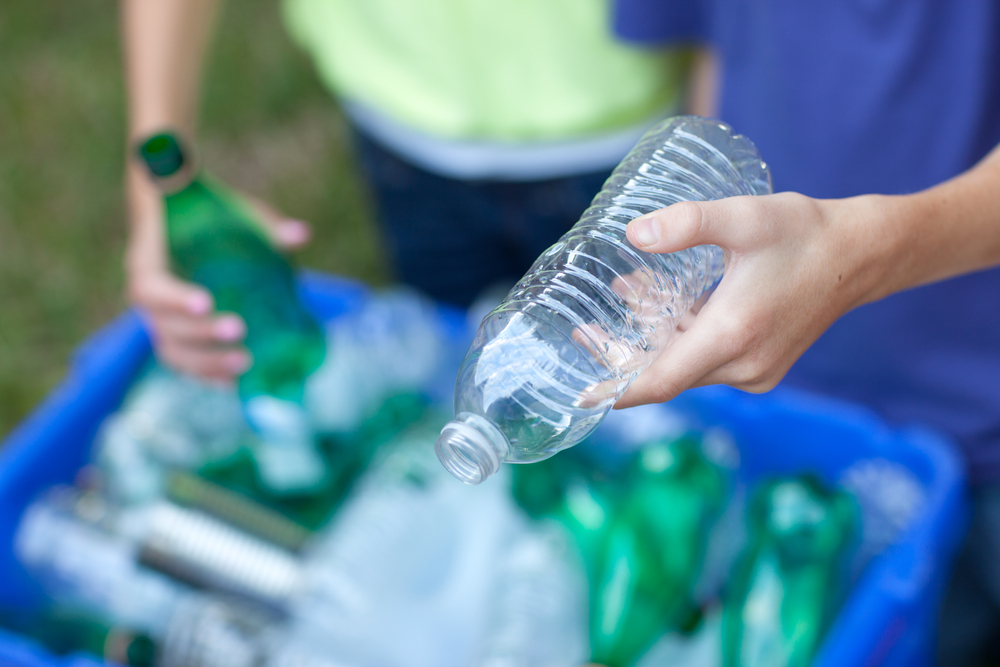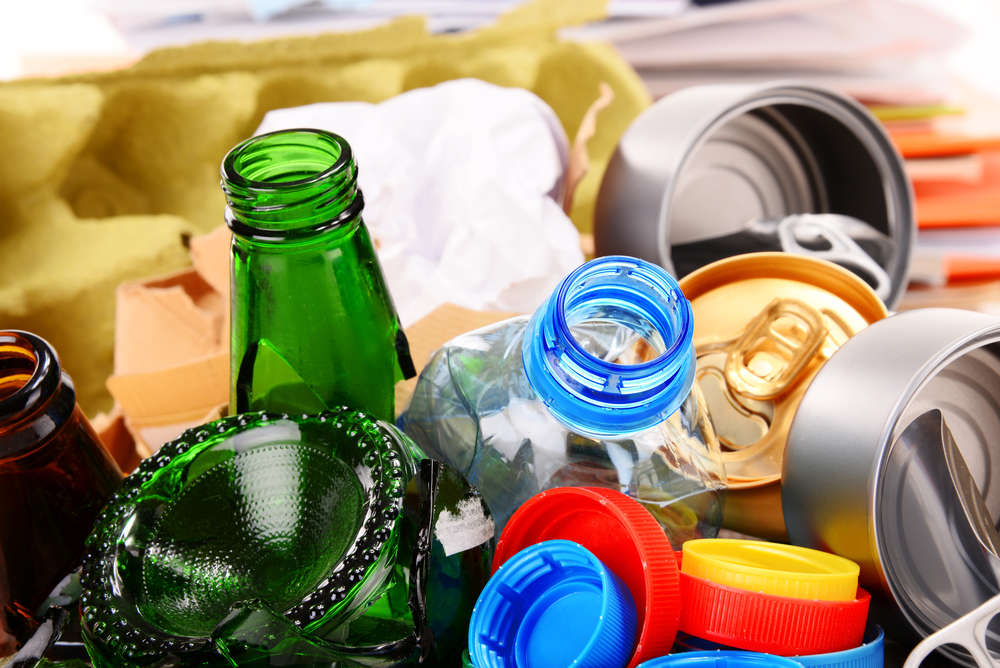Every time I throw something in the bin I'm faced with the same internal struggle. Which bin does this go in? It could be a coffee cup, a milk carton or a greasy pizza box. The stress is the same. Recycling bin or general waste? What about the labels? The lids?
Recycling is a great opportunity to conserve energy and minimise carbon consumption, but it can easily become overcomplicated. Dumping everything in general waste might be the easy way out for us, but it isn't what's best for the planet.
When I was first thinking about this I planned to write a conclusive list of every item and where it can be recycling. But in the end, recycling isn't about list-making or feeling guilty. Instead, at the centre of recycling is changing the way we look at the world's finite resources.

Caption: Recycling allows us to avoid sending everything we consume to landfill. Source: Shutterstock
Understanding the Core
Sometimes I think we forget the point of recycling. Our recycling bins aren't just there to divide "clean" rubbish from "dirty" rubbish. It's not just an aesthetically pleasing way of separating the things that smell from the things that don't. At the end of the day, the garbage bin is taken to landfill, whereas the contents of a recycling bin are made into something else.
At the heart of recycling is understanding that the world has limited resources. That some of the things we throw away are actually potential ingredients that could be used to create something beautiful. Things like steel or aluminium can be used over and over again, and dumping them in landfill is actually limiting their potential.
I only feel angry when I see waste. When I see people throwing away things we could use.- Mother Teresa
Recycling is about understanding that a products life cannot be expressed by a flow chart, because it is part of a cycle. The reason we recycle is to reuse precious resources which otherwise would become useless.
That being said, there are times when recycling isn't appropriate. Recycling uses energy and water, and so it's important to be mindful about reducing our consumption as well as relying on recycling. While recycling saves money and minimises pollution, it's a response to a greater problem of consumer culture. Recycling isn't the only 'R' we should think about it's also important to think about saying no to items in the first place.
Recycling is a matter of making day to day decisions about the future destination of various items.

Caption: Items that we can recycle or compost
It's easier than you think!
When I started trying to minimise the waste in my life I had trialed three different DIY deodorant recipes over a very smelly three month period before realising that empty deodorant cans are recyclable!
These days I try not to make assumptions, and it has paid off. There are a surprising amount of resources out there to help recycle things like: underwear, cooking oil and e-waste.
There are also a bunch of time-consuming habits that seem to go alongside recycling, but don't actually have much justification. Crushing your cans is fine if you are trying to fit them somewhere, but it isn't necessary because the machines at replying plants are more than capable. Similarly, while you have the freedom to remove labels from containers and jars, in many cases it actually isn't necessary.
My usual principle is to try and educate myself about what is recyclable, but to always be on the safe side. If I put something in my recycling bin that isn't recyclable, it actually contaminates everything else.

Some guiding principles to avoid:
(1) Look out for Food Contamination
Possibly one of the most frustrating recycling errors we make is trying to recycle containers that are covered in stains or even have food in them. A greasy pizza box or the dregs in your juice carton are bad news. Not only are these impossible to recycle, but also they can often contaminate items which otherwise would have been fine.
In most cases with tins, bottles or containers it is pretty easy to wash off the traces of food, but in some cases like a pizza box, it's actually impossible to get rid of the grease.
But think about it, if you were buying recycled toilet paper, would you want it to smell like Pizza?
(2) You can't recycle soft plastic
Somehow, I get this idea in my head that because I can tear a plastic bag, it must be okay for the environment. I even had a plastic bag in my recycling bin. But that would send my otherwise recyclable items straight to landfill.
Council recycling bins do not usually accept plastic bags, but most major supermarkets have recycling facilities. More and more countries are banning plastic bags.
While plastic can sometimes be recycled into different products, it doesn't biodegrade, but instead shatters into smaller and smaller fragments. Avoiding plastic is an important way which we can lessen our eco-footprint.

(3) Beware of the lid.
A milk or juice carton can be recycled. But its plastic lid cannot.
Plastic add-ons make a big difference to the ability of these materials to be recycled. Similarly, the wax or plastic coating in some packages seem small, but disqualify a product from being recycleed.
Just by unscrewing the lid, we can give a new life to items that would have been sent straight to the dump.
By following these few tips it's possible to completely change where the products we consume will end up. Looking out for those greasy pizza boxes and soft plastic bags helps the recycling facilities, the environment and hopefully you as you walk up to put something into the bin.
Images: Shutterstock

